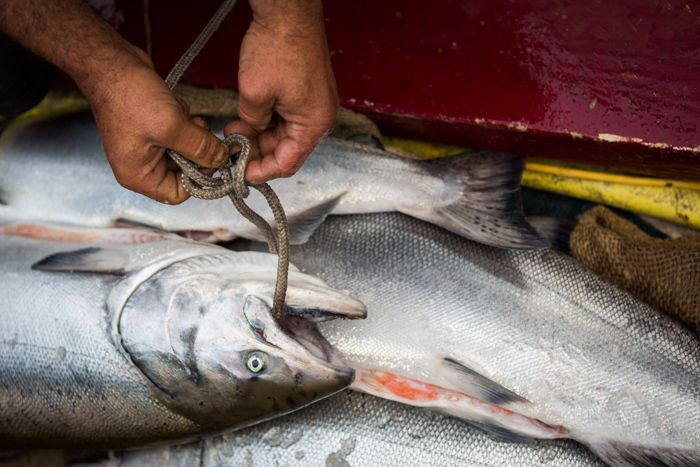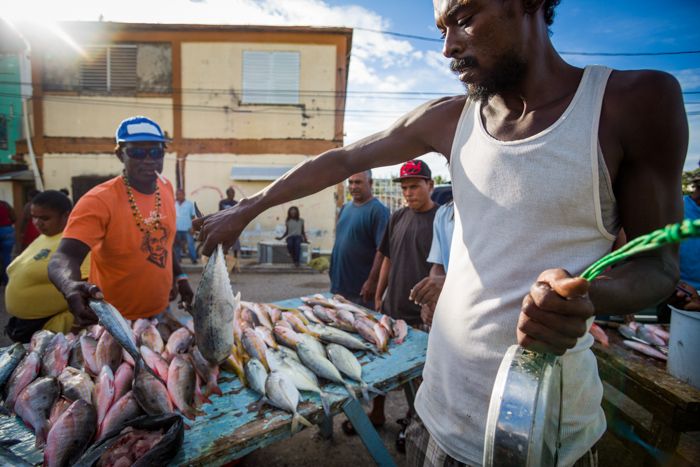blog
Interview with photographer Jason Houston
F-Stop Magazine: How did you first become involved in photography and what led to you working in this medium as an artist?
Jason Houston: I have done photography as along as I can remember. I can’t remember a time when I didn’t see the world through the possibility of making a photograph. And I don’t mean from an aesthetic or sentimental perspective—I’ve missed preserving most of the greatest sunsets I’ve seen and once forgot to photograph a whole Christmas. Most practically, photography is just the tool that works best for me to tell stories I think are important and explore the issues that I believe are critical to how we live on the planet and with each other. More personally, I love the processes of ethical, non-fiction photography—the challenges of taking an unmanipulated reality and interpreting it in a way that adds meaning truthfully and makes that momentary scenario legitimately relevant to deeper, broader conversations. And I love also that it can be open-ended and requires the participation of the viewer. Other forms of documentary work can be too literal or prescriptive for me. Non-fiction photographs by their very nature, both in the images themselves and with what a viewer brings to the interaction, provide an infinite number of possible understandings. They evolve far beyond the original intentions of the photographer and can continue to surface new truths as culture also changes around them.
F-Stop: The “Documentary” issue of F-Stop includes your project “Fisheries” can you tell us about this project? What led to you creating this project?
JH: Almost all of my work is assignment driven, but I definitely concentrate on subjects and stories that I am also personally deeply committed to working on. For me that means the dynamics at the intersections of social and environmental issues. I care that we live both well and good on this planet and with each other and fisheries are a perfect example of this. As I outlined in the statement with my project, somewhere around half of the world’s population relies on the oceans as a critical source of protein, yet almost all of the areas that provide this protein are on the verge of collapse. And this dynamic is the worst in the under-resourced developing tropics. I am strongly motivated by the environmental issues, but I am even more motivated by the humanitarian ones. Fisheries represent a global food security crisis for a huge percentage of the world’s population. At the same time, I have seen progress in the areas and with the various programs I’ve photographed for, including Fish Forever (Rare, Environmental Defense Fund, and UCSB) and the Community Fisheries Network (Ecotrust and Island Institute) and there are new studies supporting the idea that better managed fisheries would be both more profitable, producing more fish to eat, but also more environmentally sustainable. A recent study in Science says increasing catches by as much as 40%…
F-Stop: Can you discuss your process for making these images or your creative process more generally? Do you get to know the people and communities you photograph? How long do you spend in a particular location?
JH: By working with the NGOs working on the ground and embedded with these issues I have the advantage of really jumpstarting my introductions into the different communities I’m photographing. My assignments usually range from 1-2 weeks in length and I can usually hit the ground running. Once I’m there I spend as much time with my subjects as possible, often living with them and eating with them and always taking the time to report their backstories as extensively as possible. The backstories are as important as (and deeply inform the making of) the photographs. They’re essential for knowing what I’m supposed to be trying to show in the image. I also do everything I can to capture as much of their authentic experience as I can. Just by being there, and especially by holding a camera, I’m influencing the situations, but I work really hard to get my subjects to forget that. I travel extremely light with just one small camera bag (and I love compact cameras, etc.), and I never ask anyone to pose or to do something again or just for the camera.
F-Stop: What do you hope people see or feel or perhaps learn when they look at these photographs?
JH: If I’m doing my job right, my photographs are provoking conversations on important social and environmental issues. I hope the images are effective to look at—that aesthetics and emotional content or drama helps to engage the viewers—but in the end it’s about making people care enough to take the next step in their engagement and that means to think and talk about it, but ideally, act. I research my subjects as well as I can, but I’m still not an expert and I don’t know the answers. I love finding complexity in my stories and that even more so means I’m cautious in stating what maybe needs to be done. But my work is cause-driven and is about change and so I do take a stand when it comes to understanding where there are issues we need to be discussing and how I think we should be prioritizing those conversations.
F-Stop: What is the intended “end” or “purpose” for the project? (i.e, book, multi media piece, etc)
JH: My goals with this and related projects is simply to keep promoting conversations on these issues. I look to feed it out through as many diverse channels as possible and ideally in unconventional forums, meaning outside the art or photography or conservation worlds. If I have the opportunity to exhibit this work (a more conceptual but very similar project is on display at Fovea in Beacon, NY) I seek venues that allow for workshops or educational lectures as well. When I publish this work I am happier with understated books that can be used as resources rather big pretty formats that sit on coffee tables. A recent book I did on food called “Reclaiming Our Food: How the grassroots food movement is changing the way we eat” is a great example. It’s a collection of about 60 profiles of community-based food projects across the country, presented as a resource for others who are interested in this movement, and was named one of the Top Ten Books on the Environment in 2012 by BooklistOnline. This fisheries work specifically is being actively used by the organizations working on these projects to expand their impact globally through recruiting partners and donors, educating the public, etc. and that happens in manny different mediums through many different outlets.
F-Stop: What are you working on now?
JH: Most of my time now is spent on this fisheries management work specifically but also more generally on conservation work that’s taking into account the people who live with and rely on the resources we’re working to protect. It sometimes feels like a narrow niche, but it’s also a really important direction that a lot of conservation organizations are working in so it tends to keep me busy. And I’m especially excited to have joined the International League of Conservation Photographers last year and look forward to some bigger projects with them. Apart from my own photography, I’m also very into developing better business and creative practices around cause-driven work. Two years ago I joined Blue Earth (a 501c3 fiscal sponsor for documentary projects) as the first national board member and have taken on the task (with fellow board member Benj Drummond) of running the annual Collaborations for Cause conference. This multi day event brings together the different stakeholders in these collaborative projects and explores all the ways we can make it all work better. The 2014 event will happen this fall.
For more of Jason Houston’s work: www.jasonhouston.com
Location: Online Type: Featured Photographer, Interview
Events by Location
Post Categories
Tags
- Abstract
- Alternative process
- Architecture
- Artist Talk
- artistic residency
- Biennial
- Black and White
- Book Fair
- Car culture
- Charity
- Childhood
- Children
- Cities
- Collaboration
- Community
- Cyanotype
- Documentary
- Environment
- Event
- Exhibition
- Faith
- Family
- Fashion
- Festival
- Film Review
- Food
- Friendship
- FStop20th
- Gender
- Gun Culture
- Habitat
- Hom
- home
- journal
- Landscapes
- Lecture
- Love
- Masculinity
- Mental Health
- Migration
- Museums
- Music
- Nature
- Night
- nuclear
- p
- photographic residency
- Photomontage
- Plants
- Podcast
- Portraits
- Prairies
- Religion
- River
- Still Life
- Street Photography
- Tourism
- UFO
- Water
- Zine







Leave a Reply